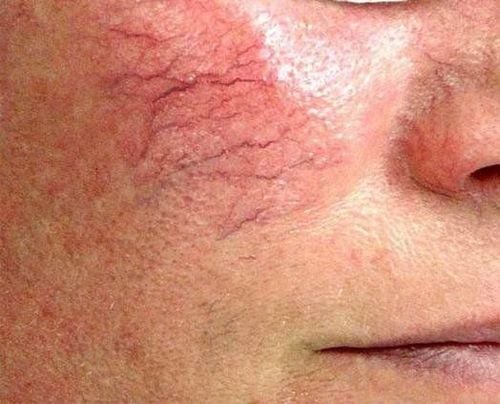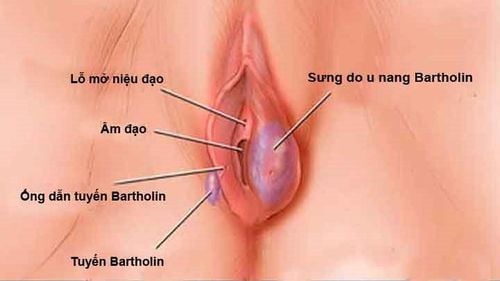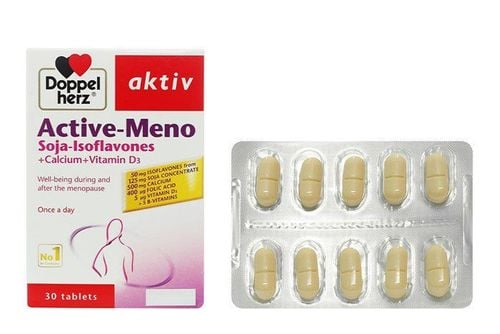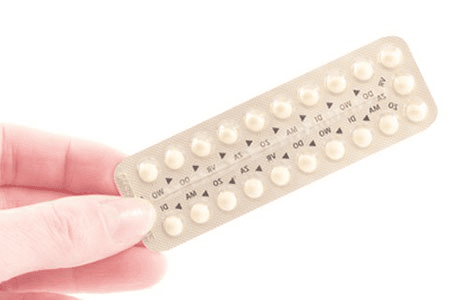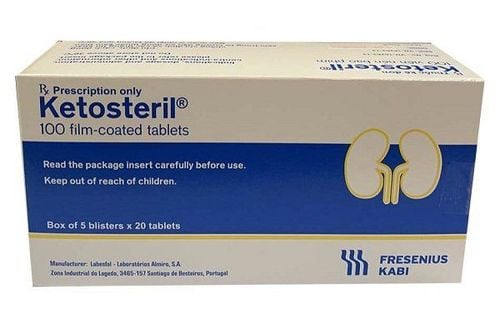This is an automatically translated article.
Entering the age of 40, many hormones in the body decline and women enter perimenopause, this is a natural stage that every woman has to go through. Most women will present mainly with menstrual disorders that cause anxiety and impact on life. So what is the physiological amount of menstrual blood and when is a warning sign of health that needs to be consulted by a doctor?
1. Change in 40 . period
Women around the age of 40 are in perimenopause, the period that occurs before menopause. At this stage, the hormones decline, but menstruation has not stopped. The symptoms will vary from person to person. This phase lasts at least a few months, even up to 4 years in some women.
This is the active phase of the endocrine axis Brain - Pituitary - Ovaries decline, not producing enough female hormones: estrogen, progesterone to meet the organ's activities in the body. Therefore, women have to face changes in terms of physiology, health and beauty... The symptom that most women experience during this period is menstrual disturbances, this is also a symptom of menstrual disorders. The problem makes many women worry and affects their work and life.
2. Menstrual disorders in their 40s
Menstrual irregularities, some months coming early, some months coming late, sometimes only once every 2-3 months is due to a disorder in the ovulation process, the main cause is a decrease in female hormones. Besides, some adnexal tumors also cause menstrual disorders. Therefore, women need to pay attention to when it is physiological and when it is a warning sign to consult a doctor.
According to many studies surveying healthy women in perimenopause, the common symptom is a significant decrease in the number of days of menstruation. You can only menstruate for 3 days when your period comes. The amount of blood lost in these days is also much less.
Some accompanying symptoms that may occur are:
Hot flushes Feeling chills, night sweats Unusual vaginal dryness Mood swings, easily lead to stress Weight gain Hair loss, dry skin Breast atrophy Difficulty sleeping

Khó ngủ có thể là nguyên nhân khiến phụ nữ 40 tuổi kinh nguyệt không đều
3. What is a low period?
Menstruation will take place regularly every month according to a cycle of 28-30 days, the normal menstrual period is about 3 to 7 days with a blood loss of about 60-80ml. You can estimate the amount of blood per cycle based on the number of tampons changed daily and how wet the pad is. If you notice less bleeding compared to previous periods, there is a high chance that you have light bleeding.
However, sometimes you don't even notice how much blood each period is. Therefore, to check more accurately you should rely on the number of menstrual days. The number of days your period is less than usual, indicates that your period is decreasing.
4. How to overcome menstrual disorders
Menstrual disorders not only cause discomfort and fatigue for women themselves, but also affect the spirit of women and their married life. However, this is a normal physiological period, everyone has to go through it, the main cause is the decline in female hormones, which can be completely self-corrected through dietary changes and life style.
4.1 A diet full of necessary nutrients Supplementing with necessary nutrients to balance hormones in the body helps to improve the condition of less menstrual bleeding. Some foods should be used such as:
Soybeans: Soy promotes the body to produce female sex hormones, balances hormones and improves menstrual bleeding. Many studies show that the isoflavones compound in soybean sprouts, like the body's estrogen, plays a role in hormonal balance, which is a natural therapy recommended by experts in the field of gynecology. Isoflavones in soybean sprouts are also known as Herbal Estrogens – a safe and effective alternative to synthetic hormone therapy. Fish: Certain types of fish contain amino acids and omega-3s that optimize the effects of hormones and reduce cortisol levels to balance estrogen and testosterone levels in the body. Green vegetables: Some vegetables such as cabbage, cauliflower, spinach, lettuce, ... have the effect of maintaining the balance of hormones in the body.

Chế độ ăn uống đầy đủ chất dinh dưỡng giúp khắc phục tình trạng kinh nguyệt ra ít ở tuổi 40
Some foods to avoid:
Do not eat fried, greasy foods because they contain saturated fat such as sausages, fried chicken, instant noodles, ... they will stimulate hormones, cause female hormone disorders, in addition to affecting other organs of the body such as the heart and stomach. Besides, you should not use carbonated drinks, alcohol, stimulants, they will disrupt hormones, causing hormonal imbalance, which can affect menstrual status. Drink enough water every day. Water plays an extremely important role for the body such as eliminating toxins, excreting, transporting nutrients. Not only that, adding enough water every day also helps regulate menstruation, increase menstrual blood, and improve the condition of less menstrual bleeding.
4.2 Exercise and sports - regular physical exercise Daily exercise helps you to improve hormonal disorders. Set a reasonable exercise schedule and maintain it regularly to achieve the desired results. A reasonable time for each day is 20 minutes with appropriate exercises. Gentle exercise can be done on menstrual days to regulate menstrual flow.
4.3 Improve mental life Always keep yourself psychologically comfortable, optimistic love life, minimize stress and anxiety, this is very helpful in stabilizing hormones in the body.
If you are in menopause and you experience the above symptoms, it is not necessary to go to the hospital because most likely physiological changes are completely normal. However, if they cause you extreme discomfort, greatly affect your quality of life, or take the above measures and still have little bleeding, you should seek the help of your doctor. At this time, your doctor may advise you and give you some medicine to treat the symptoms. See a specialist right away for timely diagnosis and treatment, to avoid dangerous complications.
Currently, Vinmec has deployed the Basic Gynecological Examination and Screening Package. This examination package can detect inflammatory diseases early, making treatment easy and inexpensive. When registering for the Basic Gynecological Examination and Screening Package, customers will receive:
Gynecological examination. Transvaginal ultrasound of the uterus and ovaries. Bilateral breast ultrasound. Tests such as: Treponema pallidum rapid test, Chlamydia rapid test, taking samples for cervical-vaginal cytology, bacterioscopic staining (female vaginal fluid), HPV genotype PCR automated system, total analysis Automated urine collection.
Please dial HOTLINE for more information or register for an appointment HERE. Download MyVinmec app to make appointments faster and to manage your bookings easily.




